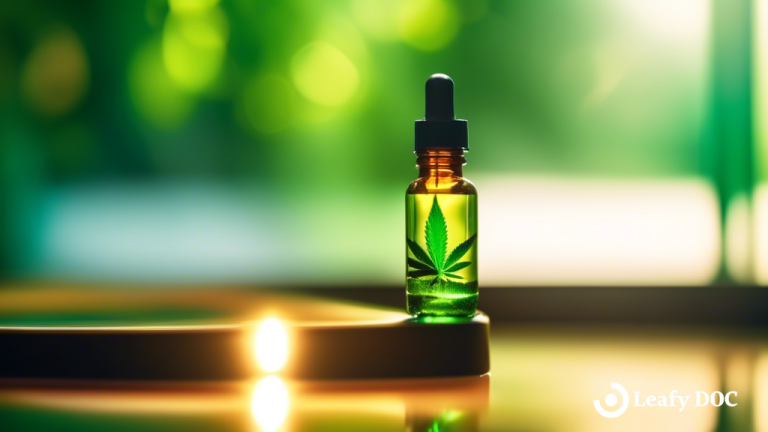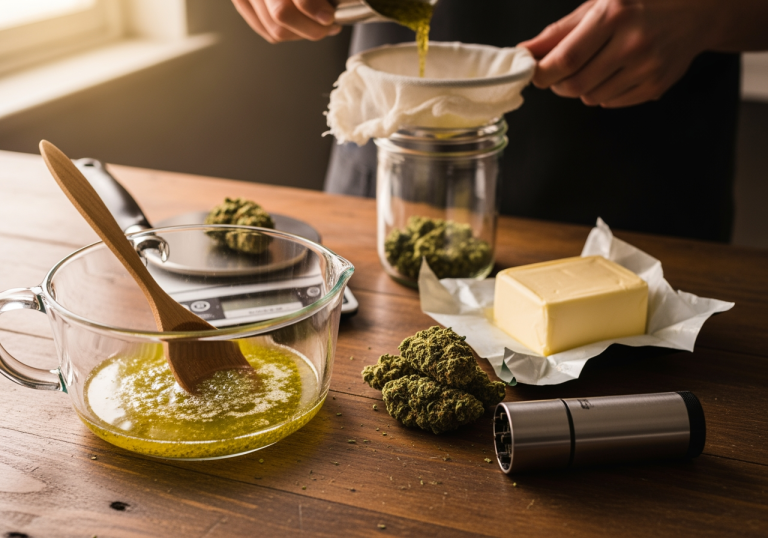Night Terrors
Can medical marijuana help people with symptoms of night terrors? Find out more below.
What are Night Terrors?
Night terrors are a sleep disorder that often occurs in children between 3 and 12. During a night terror episode, the child may suddenly sit in bed, scream, and appear terrified. Unlike nightmares, which occur during the REM (rapid eye movement) phase of sleep, night terrors occur during non-REM sleep, usually within the first few hours after the child falls asleep. The child may also sweat, breathe rapidly, and have a rapid heart rate. However, despite appearing awake, the child is usually unaware of their surroundings and may not remember the episode in the morning.
Night terrors can be very distressing for the child and their parents, but they are generally considered harmless and tend to resolve independently as the child grows older. Sometimes, night terrors may be triggered by stress, sleep deprivation, or certain medications, and treating the underlying cause can help reduce the frequency and severity of the episodes. Parents can also help prevent night terrors by ensuring their child gets enough sleep, establishing a regular bedtime routine, and minimizing stress and anxiety in their child’s life.
How and Why do people get them?
The exact causes of night terrors are not fully understood, but they are thought to be related to disruptions in the normal sleep cycle. Night terrors typically occur during non-REM sleep, specifically during the deepest stage of non-REM sleep, known as slow-wave sleep. During this stage, the brain is less responsive to external stimuli, and the body’s muscles are in a state of paralysis, which may help to prevent the person from acting out their dreams. However, in people who experience night terrors, this paralysis may not function correctly, leading to physical activity during the episode.
Several factors can increase the risk of night terrors, including sleep deprivation, fever, stress, and certain medications such as antidepressants or stimulants. Night terrors may also be associated with other sleep disorders, such as sleepwalking or sleep apnea. In addition, there may be a genetic component to night terrors, as they tend to run in families. Overall, night terrors are a relatively common sleep disorder.
What are the symptoms?
Here are some common symptoms of night terrors:
- Abrupt awakening from sleep with a sense of terror or panic
- Intense feelings of fear or dread that can last several minutes
- Screaming, crying, or moaning during the episode
- Rapid heart rate, sweating, and breathing fast
- Dilated pupils and a blank or confused stare
- Difficulty in consoling or calming the person
- Lack of memory of the episode the next morning or only a vague recollection
Diagnosis & Treatment
Diagnosis of night terrors typically involves a physical exam and a detailed medical history. Sometimes, a sleep study may be recommended to monitor brain activity, heart rate, and muscle activity during sleep. This can help to rule out other sleep disorders that may be causing similar symptoms.
Treatment for night terrors is usually unnecessary, as they are considered harmless and tend to resolve independently as the person ages. However, if the episodes are causing significant distress or disrupting sleep, some steps can be taken to help reduce their frequency or severity.
These may include:
- Ensuring that the person gets enough sleep each night
- Establishing a regular sleep routine with a consistent bedtime and wake-up time
- Addressing any sources of stress or anxiety in the person’s life
- Avoiding overstimulation before bedtime, such as watching TV or playing video games
- Practicing relaxation techniques, such as deep breathing or meditation
- In some cases, medication may be prescribed to help manage symptoms, such as benzodiazepines or antidepressants
It’s important to note that treatment for night terrors should always be guided by a healthcare provider or sleep specialist, as some medications can have potential side effects or interact with other medicines.
Can medical cannabis help?
There is limited evidence to suggest that medical cannabis may help reduce the frequency and severity of night terrors. However, more research is needed to fully understand the therapeutic benefits and adverse risks of using cannabis.
One small study published in the Journal of Clinical Psychopharmacology in 2014 found that a synthetic form of THC, the primary psychoactive compound in cannabis, was effective in reducing the frequency of nightmares and improving sleep quality in people with post-traumatic stress disorder (PTSD). Since night terrors are similar to PTSD nightmares, cannabis may have a similar effect. However, it’s important to note that cannabis can have side effects and may interact with other medications. In addition, the legality of medical cannabis varies by country and region, so it may not be an accessible treatment option for everyone.
Suppose someone is considering using medical cannabis to help with night terrors. In that case, it’s essential to discuss the potential risks and benefits with a healthcare provider or a qualified medical professional knowledgeable about medical cannabis. They can guide dosing, potential side effects, and possible drug interactions and help determine if cannabis is a safe and appropriate treatment option.
Last Updated: June 14, 2024
Get Your Medical Card
Connect with a licensed physician online in minutes
Table of Contents
Keep Reading
-
Unlocking The Power Of CBD Tinctures
Discover the amazing benefits of CBD tinctures and how to maximize their power for your well-being. Unleash the potential of CBD tinctures today for a healthier you!
-
The Best Method For Making CBD Oil
Unlock the Secrets of Crafting Top-Quality CBD Oil – Click Now!
-
How to Make Cannabutter
Looking to cook with cannabis? Here’s a comprehensive guide on how to make cannabutter, including step-by-step instructions and tips.



